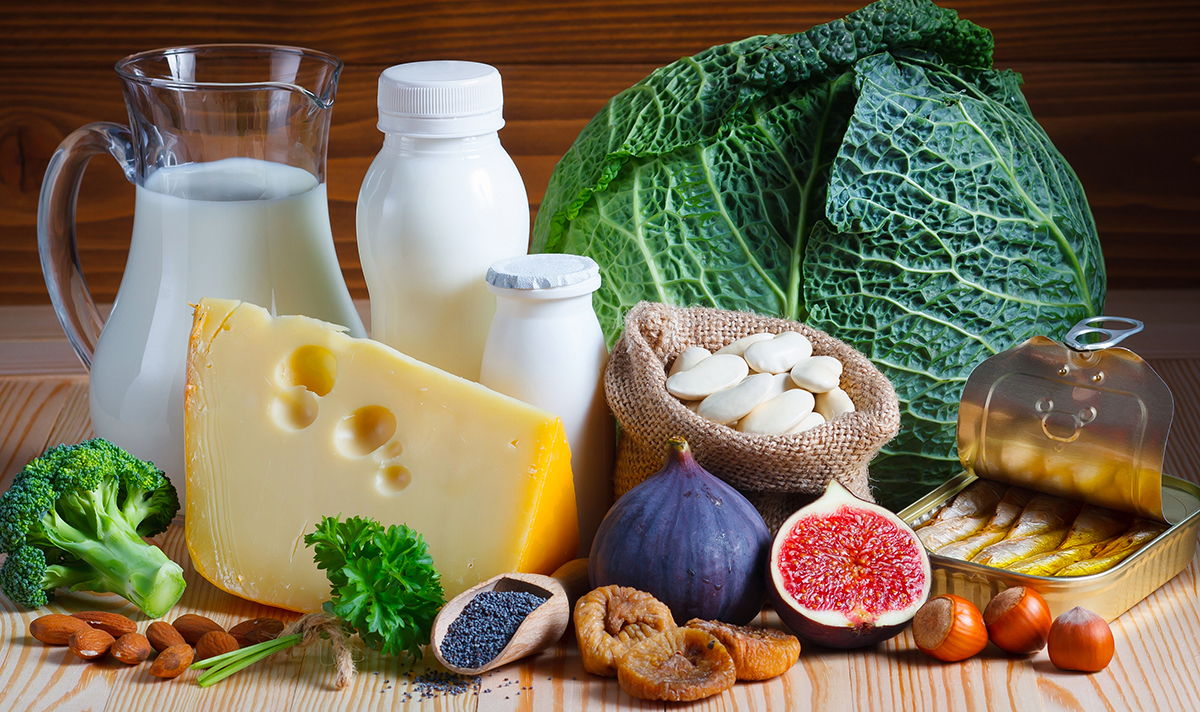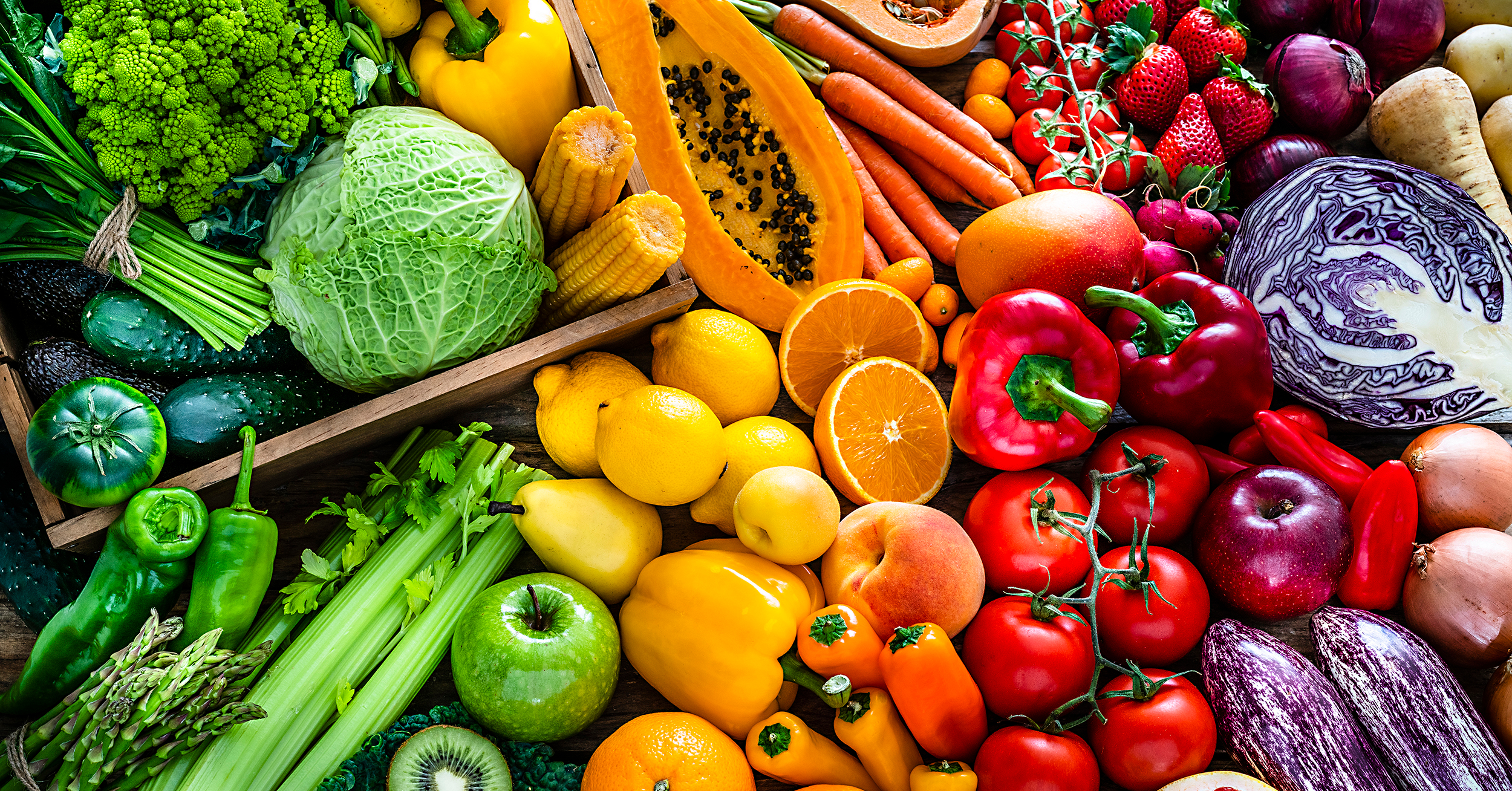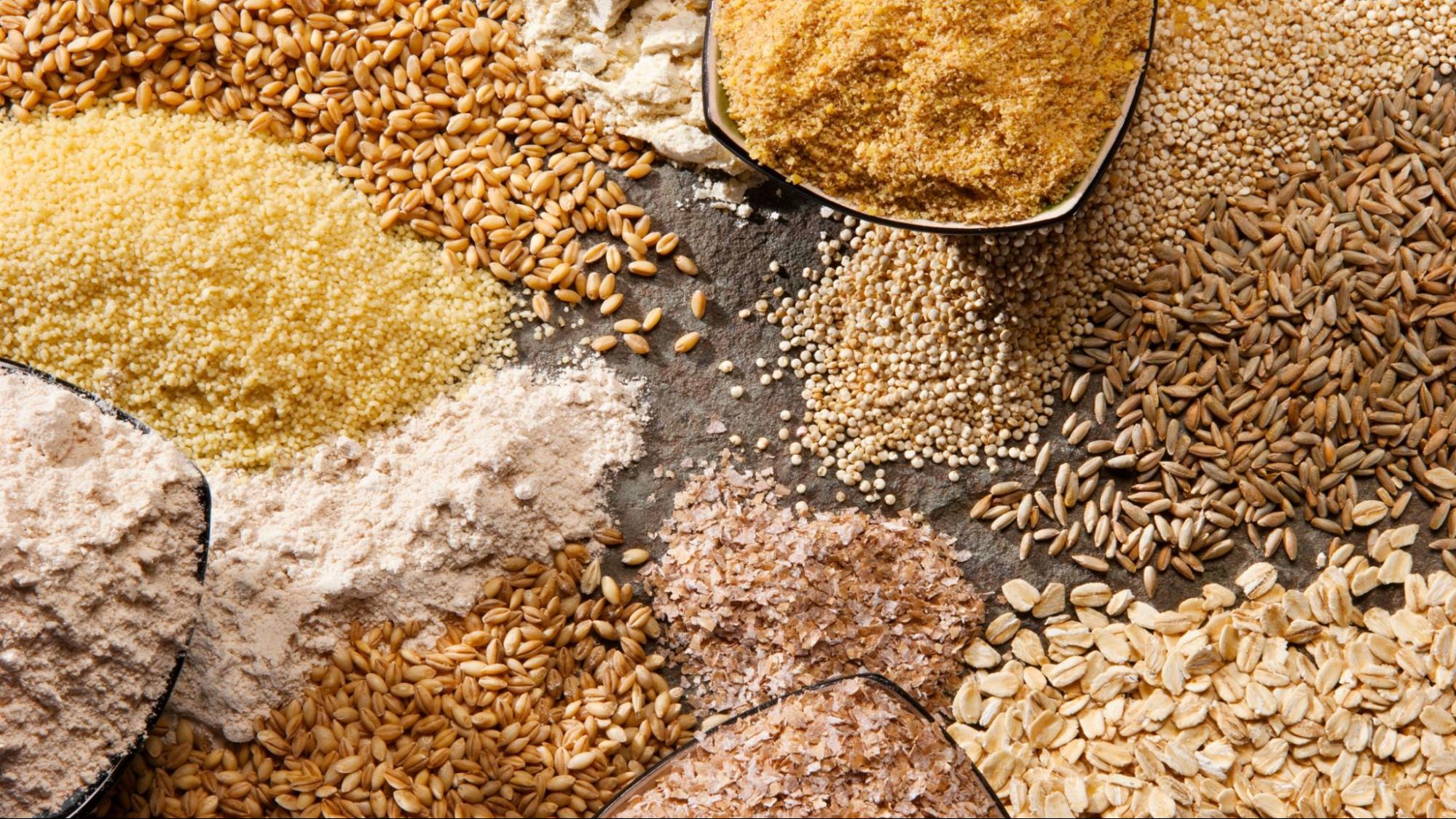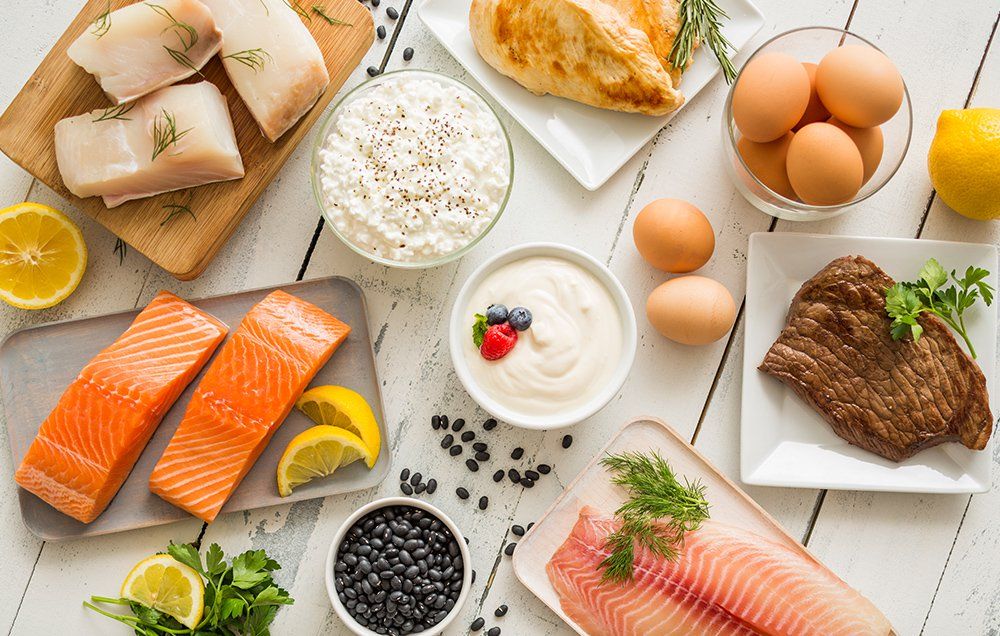Explore top healthy foods for seniors that promote strength, energy, and overall health. Easy to incorporate into daily meals for optimal aging. As we age, the importance of maintaining a balanced and nutritious diet becomes increasingly vital.
Eating well not only helps seniors stay active and independent but also supports overall health, including cognitive function, bone strength, and energy levels.
Understanding the specific dietary needs of older adults is essential to promote healthy aging. This guide will explore the key nutrients, healthy eating habits, and practical tips for seniors to maintain optimal health through a nutritious diet.
In this post, we’ll be sharing with you the foods that are good for seniors’ health. Well, read on to find out.
Click here to read more.
High-fiber Foods

Your meals should include food high in fiber. As you get older, the rate at which food moves through your digestive system starts to slow down. Unfortunately, this can result in the absorption of more water from food waste and cause constipation problems. Fiber will not only help counter constipation but also lower your cholesterol levels.
Some of the foods loaded with healthy fiber content include whole grains, nuts, beans, lentils, fruits, and vegetables.
Fish with Omega-3 Fatty Acids

Omega-3s offer enormous benefits to seniors. They can greatly reduce the risk of heart health problems, memory loss, and dementia, as well as slash down triglyceride levels to fight diabetes.
For high omega-3 fatty acids, you should consider sources like salmon, tuna, sardines, and mackerel. It’s recommended that you try to consume this healthy fat twice a week.
Dairy and Other Calcium-rich Foods

Dairy products like milk, yogurt, and cheese are good sources of calcium. However, it’s important to ensure they contain low to no fat.
The elderly need a high amount of calcium to maintain healthy bones and lower blood pressure. If you don’t meet the daily 1,000 to 1,200 mg calcium requirement, then there’s a high risk of bones becoming fragile and brittle. This can lead to osteoporosis.
You can also get calcium from vegetables, such as kale and broccoli. While spinach provides calcium, its bioavailability is poor. Your diet can include foods fortified with calcium, such as tofu, cereals, fruit juices and drinks.
But let’s face it; achieving this daily target through diet might be a challenge for many people. You can opt for calcium supplements. But first, you need to talk to a health provider for an expert opinion on what’s ideal for your health needs to avoid potential complications.
Low-calorie, Nutrient-dense Foods

Your energy levels may drop as you age, making you less physically active. That’s why you need to consume fewer calories. When you eat more calories than you burn, your body stores the unused calories as glycogen or fat. More fat reserves can make you gain significant weight, which leads to other serious health conditions.
Here are good sources of low calorie, nutrient-dense foods.
Colorful Fruits and Vegetables

In addition to containing fiber, vegetables and fruits are packed with vitamins and antioxidants that can strengthen your immune system. Apples, blueberries, dark cherries, and red raspberries are some of the healthiest fruits for seniors. The diet should also include enough amounts of dark, leafy vegetables like kale, spinach, turnip greens, and Swiss chard.
Lentils

Lentils contain a wide range of nutrients, including potassium, B vitamins, magnesium, zinc, protein, fiber, and iron. They also contain important plant compounds known as phytochemicals, which can help you against heart disease and type 2 diabetes.
Beans

Beans contain proteins, fiber, folate, antioxidants, and iron. They play an essential role in reducing cholesterol and blood sugar levels, as well as improving gut health. The healthiest beans include black beans, soybeans, kidney beans, pinto beans, navy beans, black-eyed peas, and lima beans.
Whole Grains

Eating whole grains is largely linked to the reduced risk of heart diseases, inflammation, diabetes, cancer, and other health conditions in seniors. It’s a good idea to ensure at least half of the grains in your diet are from healthy whole-grain foods like brown rice, bulgur, buckwheat, millet, barley, oatmeal, popcorn, and whole-wheat pasta, bread or crackers.
Nuts and Seeds

Nuts and seeds have unique nutrient profiles that are responsible for different health benefits. For example, they help with controlling heart diseases, weight gain, and diabetes. Almonds, walnuts, macadamia nuts, Brazil nuts, pistachios, pecans, cashews, peanuts, and hazelnuts are examples of healthy nuts to eat.
Lean Protein

You’re spoilt for choice when it comes to lean protein. You can get it from animals and plant sources. Some of the excellent sources are poultry, lean beef, seafood, beans, peas, and lentils.
You should limit the consumption of foods with high-calorie profiles, such as deserts, sweetened beverages, processed sugars, and deep-fried foods. These are the types of foods that increase weight.
The Importance of Balanced Nutrition for Seniors
Aging brings changes to the body that affect how it absorbs and processes nutrients. For seniors, it’s essential to focus on consuming a balanced diet that meets their unique nutritional needs.
Key Benefits of Proper Nutrition for Seniors:
- Bone Health: Seniors need more calcium and vitamin D to maintain bone density and reduce the risk of osteoporosis.
- Cognitive Function: Omega-3 fatty acids, B vitamins, and antioxidants are important for maintaining brain health and reducing the risk of cognitive decline.
- Immune System Support: Adequate nutrition supports the immune system, helping seniors fight infections and recover from illness more effectively.
A balanced diet for seniors should include a mix of lean proteins, whole grains, fruits, vegetables, and healthy fats, while limiting processed foods and added sugars.
Essential Nutrients for Older Adults
As we age, certain nutrients become more critical to ensure healthy aging. Here are the most important nutrients that seniors should prioritize in their diets:
Protein
Protein helps maintain muscle mass and strength, which can decline with age. Lean meats, poultry, fish, eggs, and plant-based proteins like beans and lentils are excellent sources of protein.
Calcium and Vitamin D
These nutrients are essential for maintaining bone health and preventing conditions like osteoporosis. Foods rich in calcium include low-fat dairy products, leafy green vegetables, and fortified plant milks. Vitamin D can be obtained from sunlight exposure and fortified foods such as cereals and fatty fish like salmon and tuna.
Fiber
Seniors often experience digestive issues like constipation. A diet high in fiber can help alleviate this. Foods such as whole grains, beans, fruits, and vegetables are excellent sources of fiber.
Vitamin B12
As we age, the body’s ability to absorb vitamin B12 decreases. This vitamin is important for red blood cell formation and neurological function. Seniors should include fortified cereals, fish, and low-fat dairy products to ensure they are getting enough B12.
Omega-3 Fatty Acids
Omega-3s are beneficial for heart health, reducing inflammation, and supporting brain function. Sources include fatty fish (like salmon and mackerel), chia seeds, and walnuts.
Potassium
Potassium helps regulate blood pressure and supports heart health. Foods rich in potassium include bananas, potatoes, and spinach.
Stay Hydrated: The Key to Good Health
As we age, the sensation of thirst can diminish, making dehydration a common issue among seniors. Water is vital for maintaining bodily functions, aiding digestion, and supporting energy levels. Seniors should aim to drink at least 6-8 cups of water per day, and more if they are active or in hot environments.
Signs of Dehydration:
- Dry mouth or lips
- Dizziness or confusion
- Dark-colored urine
- Fatigue
To avoid dehydration, seniors can include water-rich foods like cucumbers, watermelons, and oranges in their diet. Herbal teas and broths are also excellent ways to stay hydrated.
Healthy Eating Habits for Seniors
Healthy eating is about more than just what you eat; it’s also about how and when you eat. Here are some practical tips for adopting healthy eating habits:
Smaller, More Frequent Meals
Many seniors find it easier to eat smaller meals more frequently throughout the day rather than three large meals. This can help with digestion and ensure steady energy levels.
Limit Processed Foods
Processed foods are often high in salt, sugar, and unhealthy fats. Seniors should focus on whole foods, such as fruits, vegetables, lean proteins, and whole grains, to maintain good health.
Mindful Eating
Mindful eating encourages seniors to pay attention to their hunger cues, eat slowly, and enjoy their meals. This practice can prevent overeating and promote a healthier relationship with food.
Portion Control
Seniors may not need as many calories as they did in their younger years. Portion control can help manage weight and ensure they are not consuming excess calories.
Meal Planning and Preparation Tips
For seniors, meal planning and preparation can help make healthy eating more manageable. Here are some strategies to simplify meal prep:
- Plan meals ahead: Create a weekly meal plan that includes a variety of nutrient-rich foods. This can help reduce the temptation to eat unhealthy convenience foods.
- Cook in batches: Preparing meals in larger quantities and freezing portions for later can make it easier to enjoy home-cooked meals throughout the week.
- Use time-saving appliances: Slow cookers and pressure cookers can simplify meal preparation by allowing you to cook healthy, nutrient-dense meals with minimal effort.
- Focus on easy-to-prepare foods: Keep quick, healthy snacks like yogurt, nuts, and fruit on hand for easy access.
Addressing Common Nutritional Concerns
Seniors may face certain nutritional challenges, such as weight management, digestive issues, or nutrient deficiencies. Here are some solutions to common concerns:
- Constipation: Increasing fiber intake through fruits, vegetables, and whole grains, and staying hydrated can help relieve constipation.
- Weight Management: Seniors should focus on nutrient-dense foods that provide vitamins and minerals without excess calories. Small, balanced meals can help with weight control.
- Nutrient Deficiencies: Seniors who struggle to get enough nutrients from food alone should consult their healthcare provider about supplements, especially for vitamin D, calcium, and B12.
Consulting a Healthcare Professional
Before making any significant changes to their diet, seniors should always consult with a healthcare provider or registered dietitian. Personalized dietary advice can address individual needs, and working with a professional can help seniors create a senior nutrition plan tailored to their health conditions and goals.
FAQ’s
Conclusion
Maintaining a healthy diet is essential for promoting longevity, supporting physical and mental well-being, and managing age-related health conditions. By focusing on nutrient-dense foods, staying hydrated, and adopting mindful eating practices, seniors can enjoy a higher quality of life through good nutrition. Planning meals and addressing common nutritional concerns will also make healthy eating more accessible for older adults.

